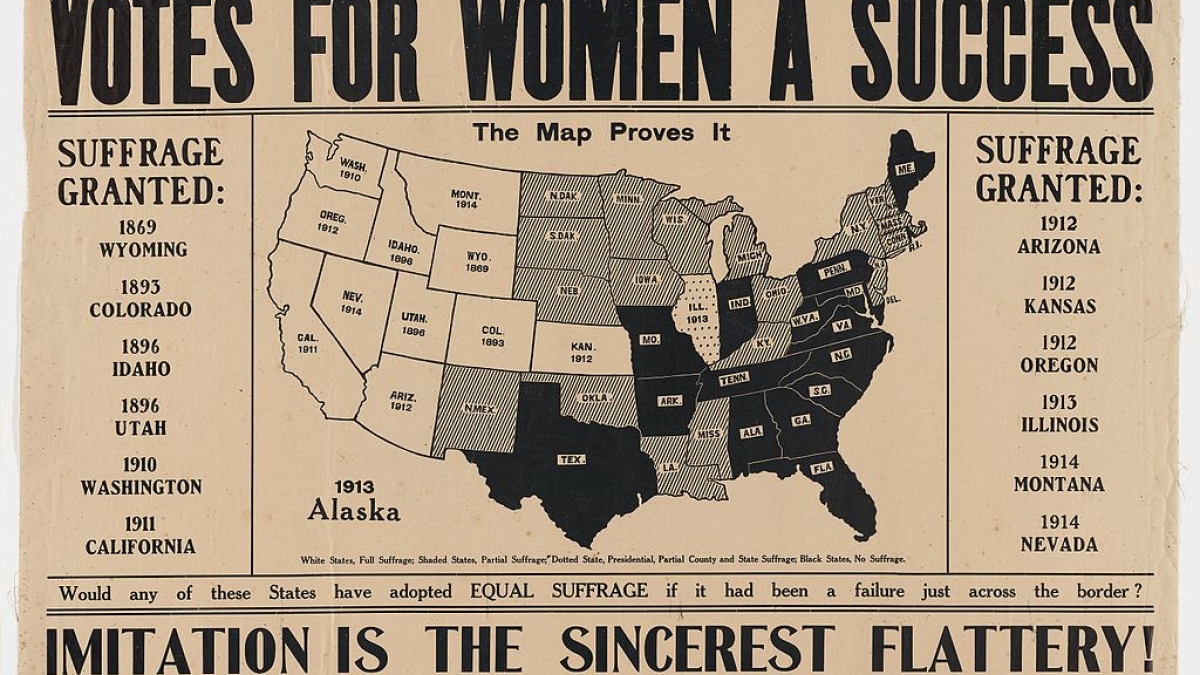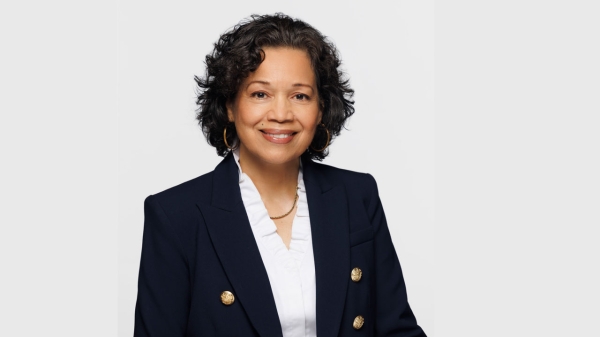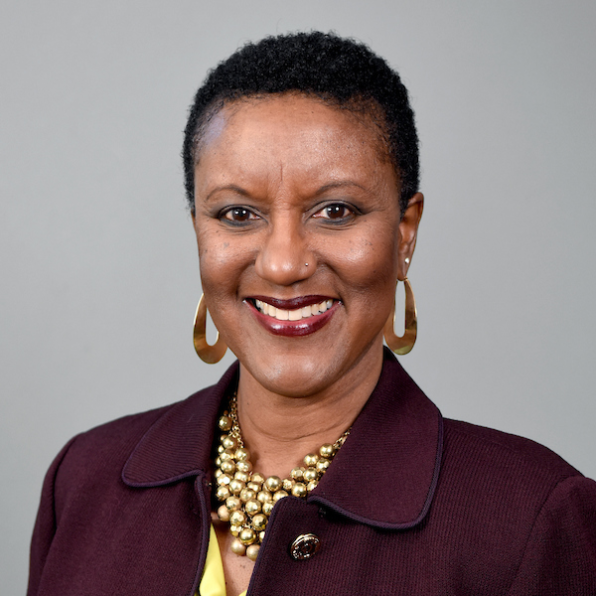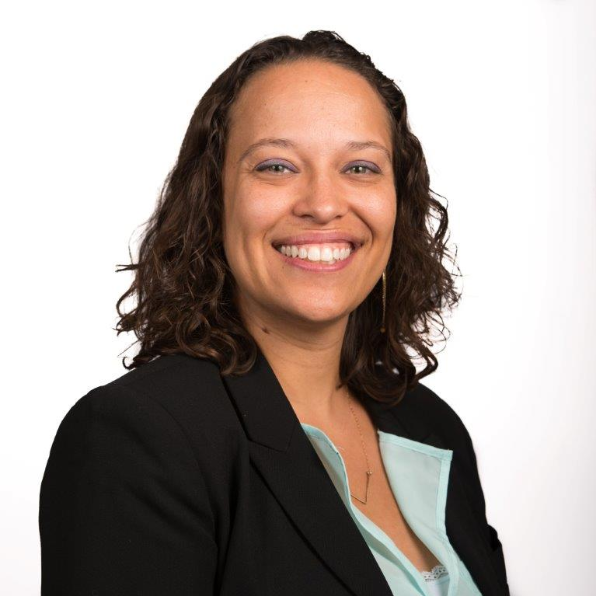100 years and counted: Women’s movement still moving after 19th Amendment
ASU professors reflect on women's fight for voting rights

Voted in by Congress on June 4, 1919, ratified on Aug. 18, 1920 and enacted into law on Aug. 26, 1920, after seven decades of protests, politics and persistence, victory finally — and rightfully — became hers.

The 19th Amendment, 39 words etched into the edicts of the U.S. Constitution guaranteeing women the right to vote, would forever change the face of the American electorate. It remains, to date, the only explicitly guaranteed constitutional protection for women and the reason why scholars and warriors call it a milestone in the miles to go for equal rights under the law.
Now, 100 years after its passage and enactment, women are reflecting on the struggle, the impact and the future of the movement that led to the 19th Amendment’s transformative but complicated legacy. ASU Now spoke to a few scholars about the meaning of this milestone moment in U.S. history and what it means going forward.
What do you see as the greatest impact of the 19th Amendment?
Irasema Coronado, director and professor, School of Transborder Studies
Irasema Coronado
The 19th Amendment has opened the door for women to participate in politics and at the same time raise issues such as reproductive rights and bring them to the forefront. While women have gained a lot, there is still a lot of work to be done.
I would like to see the ratification of the Equal Rights Amendment that states "Equality of rights under the law shall not be denied or abridged by the United States or by any state on account of sex. The Congress shall have the power to enforce, by appropriate legislation, the provisions of this article."
Olga Idriss Davis, associate dean, Barrett, The Honors College, Downtown Phoenix campus; professor, Hugh Downs School of Human Communication
Olga Idriss Davis
As a Black feminist scholar and critical cultural communication scholar, I see the greatest impact of the 19th Amendment in its illumination of the role of race and gender in U.S. politics. The 19th Amendment created a space for recognizing the reality of African American women’s participation in justice and democracy on the political canvas of this country. It was during the women’s suffragist movement (1848-1920) that we saw the determination of white women obtaining the vote for women, but only for white women. Black women were neither seen as persons in the U.S. Constitution, nor as women in the same echelon as white women worthy of participating in equal rights for women — all women.
It was in March 1913 that Ida B. Wells-Barnett, a Black woman activist, suffragist, newspaper reporter and co-owner living in Illinois, participated in the first suffrage parade in Washington, D.C., organized by the National American Woman Suffrage Association. She and 60 other Black women arrived to march with the Illinois delegation but were advised immediately, as women of color, to march in the back of the delegation, so as not to upset the Southern delegation. Wells-Barnett was obstinate and chose to take her group of 60 women and march alongside her Illinois delegation of compatriots. Wells-Barnett refused going to the back, saying, “Either I go with you or not at all. I am not taking the stand because I personally wish for recognition; I am doing it for the future of my whole race.” Wells-Barnett embraced the Black feminist notion of an “ethic of care,” the notion that care is for an entire community — both women and men, children and families of all colors, when voting rights are front and center. Wells-Barnett’s sentiments impacted the 19th Amendment and ring true even today.
Rosemarie Dombrowski, poet laureate of Phoenix, lecturer, College of Integrative Sciences and Arts
As we know, the 19th Amendment did not immediately lead to universal voting rights/access for women, though it did establish the power of women’s voices in this country, and accordingly, it established their personhood, their agency, and their intellectual capabilities. It was the critical first step toward gender equality.
Aviva Dove-Viebahn, assistant professor of film and media studies, Department of English
Aviva Dove-Viebahn
The 19th Amendment has always struck me as a something that shouldn’t have been necessary in the first place; of course, all citizens should have the right to vote regardless of sex. The sense of this being obvious is a good reminder that we’ve seen a lot of progress in the last century. Still, we haven’t had a woman president, nor do women have equal representation in the legislative or judicial branches of government. The fight for equality is long and complicated. A hundred years is a short time historically — and while we’ve come a long way, we still have a long way to go.
Mako Fitts Ward, clinical assistant professor, School of Social Transformation
The greatest impact of the 19th Amendment is that women across the country earned the right to one of the most basic fundamental rights of American citizenship — the right to vote. Another important impact was the advancement of women’s collective political organizing through the women’s suffrage movement. This movement solidified the organizing power of women and, following the strides made by women abolitionists, ensured that there would always be networks of political mobilizing for women, in particular white women.
Gina Woodall, senior lecturer, School of Politics and Global Studies
Gina Woodall
I think the greatest impact of the 19th Amendment is the fact that it extended beyond women’s suffrage. Researchers have found that with women’s suffrage came changes in congressional policy agendas. For example, with women’s suffrage came increased spending on social programs. With women’s suffrage, children’s mortality rates decreased. With women’s suffrage, there was an expansion of educational opportunities for children. So I think one of the greatest legacies of the 19th Amendment which people don’t always realize, is the broadening of policy priorities in Congress. With more women voting and participating in politics, elected officials were held accountable to a larger swath of constituents and, thus, issues they may not have paid much attention to before became critically important.
How has the right to vote affected you personally?
Coronado: I have always exercised my right to vote and have done my part to mobilize voters. I have helped community based organizations with efforts to naturalize immigrants so they can exercise their right to vote.
Davis: The right to vote has affected me personally because of the Voting Rights Act of 1964 and 1965. These acts of Congress were the landmark legislation of civil rights which guards again racial discrimination in elections. The late Congressman John Lewis and others fought to ensure my right to vote as recently as 1965! Just 50 years ago, I would not have been given the right to vote because of the color of my skin. One might ask, “Could we return to that same unjust reality?” The fact that the central provision of the Voting Rights Bill was narrowly approved by the House of Representatives in 2019 reminds me of how tenuous the right to vote is for Black people and other people of color, and the challenges to our democracy still lay in the balances when it comes to race, justice, equity, and freedom.
Rosemarie Dombrowski
Dombrowski: I registered to vote when I was 17, months in advance of the then-upcoming presidential election. The polls still had booths with curtains back then (it was the early '90s), and once inside, I remember my eyes welling with tears as I filled out my first ballot. The feeling of empowerment was overwhelming.
Most women probably weren’t overcome with emotion at the polls in 1992, but I attribute that to my father, who gave me a Susan B. Anthony dollar in 1979, when I was just 4 years old. As he pressed it into my palm, he told me that she was “a very important woman in American history.” That’s a big part of the reason that I founded The Revolution (Relaunch), which is a creative “relaunch” of the original Revolution, the newspaper founded by Anthony and Elizabeth Cady Stanton (in 1868), which was the official publication of the National Woman Suffrage Association. Anthony and Stanton were first generation suffragists, and though I don’t espouse, or even agree with, all of their positions, they formed the scaffolding upon which the two subsequent generations of suffragists stood. Newspapers, like institutions and governments, need to be constantly scrutinized, analyzed, and evolved, so that’s what I’m trying to do with TRR — evolve the work.
Dove-Viebahn: I’m going to take this another direction to say that in school you’re always taught that all citizens have the right to vote and, while that may be technically true, we do not all have the equal opportunity to vote. The infringement of people’s voting rights, whether through gerrymandering, problematic ID laws that disproportionately affect the working poor and people of color, long lines at the polls, etc., mean that voting is still a privilege extended to those who meet certain criteria. Only when voting is truly accessible to everyone can it be a fully democratic process.
Mako Fitts Ward
Fitts Ward: I have voted in every election since I was 18, and I come from a legacy of Black women committed to using our voting power to impact political representation. In this historic election year, Black women voters are one of the most important voting blocs, as witnessed by the impact on the South Carolina Democratic primary and the successful organizing of groups like Sisters Lead Sisters Vote to demand that Joe Biden select a Black woman as his running mate, and he selected Kamala Harris.
Woodall: I’m fortunate to come from a family where discussing politics, government, current events and voting were common and typical. I clearly remember as a young girl, going to vote with my mother, and two sisters, usually in the local high school gym or community center. As she walked into the “booth” closing the curtain behind her, we would run around not knowing exactly what went on in there, just that it was important and she needed to be alone for several minutes. Then, I distinctly remember turning 18 the summer after my high school graduation and casting my first vote for president in 1996. I felt important. My freshman and sophomore year in college, my knowledge about women’s suffrage increased significantly, thanks to some great professors. My continued interest in women’s suffrage led me to my current research and teaching interests of women and leadership and female political candidates — how they represent themselves, how voters perceive them, and how the media covers them. These interests, of course, are now my livelihood, so women’s suffrage has impacted me significantly.
What do you see as the next frontier for the women’s movement?
Coronado: For many minority women the 19th Amendment did not make much of a difference. The Voting Rights Act of 1965, which prohibits racial discrimination in voting, was much more impactful because we could see the number of minorities elected to office after its passage.
I hope to see more diversity in our legislative bodies so that they are truly representative of the population in their respective communities — and I mean diversity with a big D. That includes women; people of different ages and abilities; and people with different experiences, cultural, educational and linguistic backgrounds. I would like to see new people involved in politics. We need to stop recycling politicians and open up the arena for new faces.
Davis: The next frontier for the women’s movement is to look at the significance of women of color and their historical inclusionary efforts to bring about systemic change in the domain of equity, justice and democracy. As we celebrate the 100th-year commemoration of the 19th Amendment and the suffragist movement, a new frontier is upon us. That frontier is to right the wrong of history.
Heretofore, the women’s movement lacked inclusion in the first, second and third waves of the women’s movement. In the suffragist movement, women of color were excluded from the story. Very little is said about Indigenous, Asian, Black and Latinx women and their contributions to the women’s movement and the suffragist politic. For example, Indigenous women had a political voice in their nations long before white settlers arrived. It’s as if they were invisible, not even seen, unnoticed as nothing more than possibly a footnote. But revisionist historians and critical communication scholars, among others, are endeavoring to have a “day of reckoning” where an accurate assessment tells the story of the contributions and tremendous influence in the suffragist effort by women of color to give women “the vote.”
Dombrowski: Intersectionality. If you’re doing any kind of social justice work today, you know that the differences that have historically divided us have catalyzed the “fourth wave,” which privileges the identities and narratives that have been the most marginalized, i.e. those of nonwhite women. White women, for the most part, were engaged in exclusionary activism a century ago, but exclusion on any grounds is simply unacceptable today. Fourth wave feminism is equality for all. Period. So I guess what I’m saying is that we have a lot of work to do, and maybe we always will!
Dove-Viebahn: This is a fraught question because there are many directions the women’s movement can and should go. Women are not a monolith. We should stand in solidarity with each other, but that does not mean all women want the same things. I believe we need to find more and better ways to embrace differences between women in our quest for overall equality. One way to do that is to focus on inclusive representation across the board — in politics, in media, in business, in education, in medicine and science — as a way of combating the disenfranchisement of all marginalized people.
Fitts Ward: The next frontier of the women’s movement is its ability to make room for the plurality of social, political, economic and cultural issues in women’s lives. ‘Women,’ as a social group, is not monolithic, and any political movement seeking to represent women must be inclusive and intersectional. Leading women’s rights organizations are being called to be inclusive with their leadership, political agendas and organizing strategies. These organizations are being called to address issues that have not been at the top of their agendas (like affordable housing, prison reform, militarism and war) because these are issues that disproportionately impact the lives of the most vulnerable women.
Woodall: I think the next frontier for the women’s movement must include intersectionality. We have more work to do in terms of dismantling the “isms” — racial, class, sexual orientation and gender identity — that people suffer from, in addition to gender inequality. The Black Lives Matter movement and the global pandemic have forced America to reckon with these issues. The movement is young, it’s offline and online, and relentless in its pursuit of equality, not only for middle-class/white/hetero/cis women, but for all women.
Top photo courtesy Flickr
More Law, journalism and politics

CBS News president to give keynote address at Cronkite School’s spring convocation
Ingrid Ciprián-Matthews, president of CBS News, will serve as the keynote speaker at Arizona State University’s Walter Cronkite School of Journalism and Mass Communication spring 2024 convocation. …

School of Politics and Global Studies director's new book explores mass violence
Why do people commit atrocities and why are certain groups, including religious and ethnic, more vulnerable to large-scale violence? These questions are explored in a new book by Güneş Murat Tezcür…

ASU faculty contributing to improvement of Wikipedia
Many academics have a love-hate relationship with Wikipedia. While the website has information about almost anything you can imagine, the credibility of that information is sometimes suspect. Tracy…





